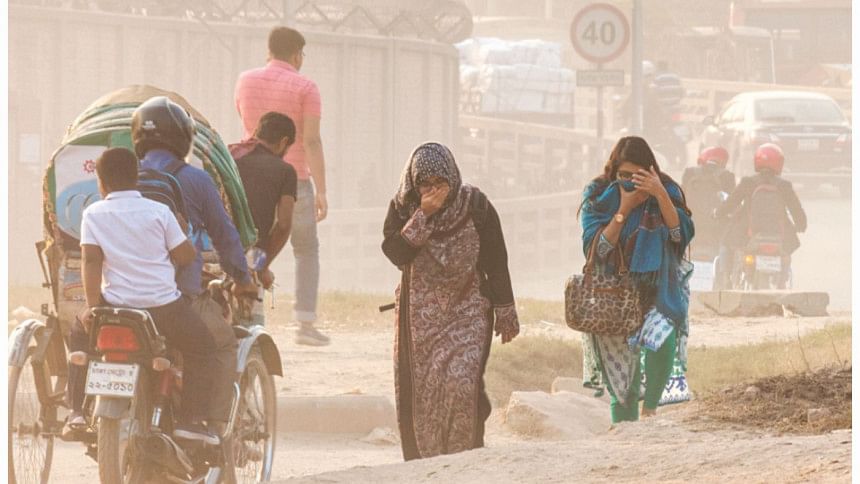Tackling Green Issues: Bangladesh 2nd worst performer

Bangladesh has been ranked the second worst country in the world in terms of handling environmental issues, according to the Environmental Performance Index (EPI) 2018.
This year Bangladesh has ranked 179, the worst in Asia, out of 180 countries, down from 173 two years ago.
The EPI ranking was published yesterday on the sidelines of the World Economic Forum meet in Davos.
Five countries at the bottom of the list are Nepal (31.44), India (30.57), the Democratic Republic of Congo (30.41), Bangladesh (29.56), and Burundi (27.43).
“Low scores on the EPI are indicative of the need for national sustainability efforts on a number of fronts, especially cleaning up air quality, protecting biodiversity, and reducing GHG emissions,” reads the report posted on YaleNews website.
It said some countries' low scores could be attributed to weak governance.
The EPI ranking is a bi-annual report produced by researchers at Yale and Columbia universities in collaboration with the World Economic Forum.
The 180 countries were scored on 24 performance indicators across 10 categories, including air quality, water and sanitation, heavy metals, biodiversity and habitat, forests, fisheries, climate and energy, air pollution, water resources, and agriculture.
The report says, “We draw special attention to the issue category of Air Quality. As the dominant source of diseases and disability in our data countries that score poorly in the 2018 EPI on air quality, such as India [Air Quality score of 5.75], China [14.39], and Pakistan [15.69], face a public health crisis that demands urgent attention.”
Bangladesh scored 4.12 on air quality.

Switzerland emerged as the leading country in overall environmental performance with a score of 87.42. France, Denmark, Malta and Sweden were in the top five while the United States made it to the 27th rank.
Seychelles ranks as the most-improved country over the past decade, rising from a baseline score of 47.05 to a 2018 EPI score of 66.02, equivalent to a jump of 86 places in the rankings. This improvement springs largely from its commitment to combatting greenhouse gas emissions.
Analysing the environmental trend, the report said the overall global environmental quality was improving, indicating that the global community was moving closer to many of its development goals.
The pace of progress, however, may not be fast enough to achieve the targets outlined in the Sustainable Development Goals and other international objectives, it added.

 For all latest news, follow The Daily Star's Google News channel.
For all latest news, follow The Daily Star's Google News channel. 




Comments